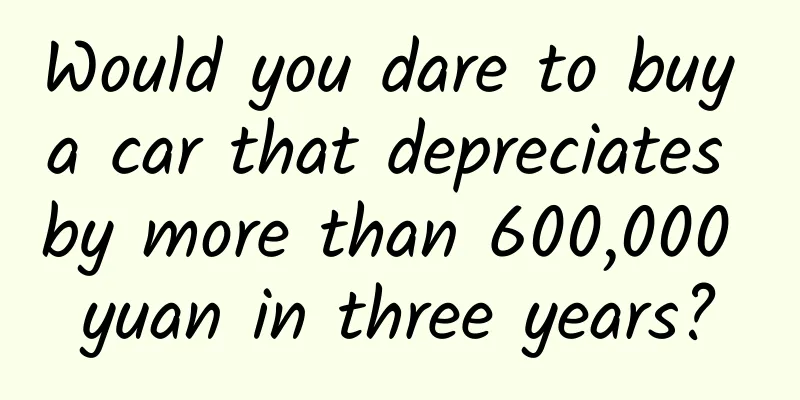Zhang Xiaolong said WeChat is "decentralized". Is this a good idea?

|
At yesterday's WeChat open class, Zhang Xiaolong elaborated in detail for the first time through video his eight major viewpoints on the WeChat public platform. From his speech, we can see Zhang Xiaolong's paranoia as a top product manager. He truly regards WeChat as his own child and will not allow any excessive commercial behavior to taint its purity. I will not comment on Zhang Xiaolong's other opinions, but I have reservations about his statement that "WeChat wants to build a truly decentralized system and will not provide a centralized traffic entrance to all public platform parties and third parties", and that the traffic entrance is in the QR code. Is WeChat’s traffic entrance really “decentralized”? The traffic entrance of multiple centers does not mean that there is no center. From the current actual situation, there are three main traffic entrances of WeChat. The first is the WeChat Guangdiantong advertising platform launched in the first half of this year, the second is the sharing of WeChat Moments, and the third is the offline QR code scanning of merchants to attract fans. Among these three traffic, the one with the lowest operation difficulty and the easiest to see results is the WeChat Guangdiantong, and this has also become another major cash cow of WeChat after games. WeChat Guangdiantong is essentially a centralized traffic entrance product, which aggregates a huge amount of C-end traffic and sells it to B-end merchants. Zhang Xiaolong said that "there will not be a centralized traffic entrance for all public platforms", which is really unjustifiable. The huge traffic of WeChat Moments is also becoming the next traffic center waiting for Tencent to realize. In the end, we can predict that Tencent will not miss the commercial mining of Moments traffic in the face of commercial interests. The possible realization methods of Weibo and QQ Space information flow advertising have provided a successful template. There were rumors that WeChat was plotting search, and it is very likely to launch a bidding system like Baidu's bidding in the future. Search itself can be regarded as a centralized traffic entrance. Is WeChat’s “decentralization” really a good thing? The most amazing thing Zhang Xiaolong did when designing WeChat was to develop WeChat official accounts and WeChat Guangdiantong, which introduced businesses and self-media into the WeChat ecosystem. The logic of its closed-loop traffic is: self-media creates high-quality articles for the platform to attract users to browse and share, gain fans, and attract users to click on ads to obtain revenue from the WeChat Guangdiantong advertising alliance. On the one hand, businesses use WeChat Guangdiantong to place ads on WeChat self-media to gain fans, and on the other hand, they also attract fans through high-quality articles, thereby realizing traffic monetization. In other words, businesses, self-media, users, third-party developers, and platforms jointly build the WeChat ecosystem. Lao Bing believes that Zhang Xiaolong's advocacy of the concept of WeChat decentralization, including his previous view that WeChat is not a marketing tool, is actually a simple view of the ecosystem from the user's perspective. The poor experience of the public account background that makes people powerless to complain, and the harsh restrictions on various marketing of merchants, have reached the point where it cannot be added. Merchants, as a key link in the platform's ecological chain, while attracting traffic to the platform, have their member and user data deposited on the platform, but as a platform, they have not provided sufficient service capabilities to help merchants convert traffic, but instead have imposed various restrictions to suppress merchants. In other words, the vast majority of merchants who have opened WeChat today, their efforts and returns on WeChat public accounts are not proportional, and the final result may be that the merchants eventually leave the platform, just like all merchants flocked to open official Weibo in the past, but now they are left with a mess, and Sina Weibo has already had a precedent. The decline of Weibo is certainly due to the rise of WeChat, poor product experience, and failure to enter the more stable acquaintance social network in a timely manner, but we should also not forget that Weibo failed to solve the important factor of merchants' traffic monetization, and it was too late when the Fanstong product was launched. As a platform, WeChat should not ignore the basic marketing demands of merchants, which is also the most urgent demand faced by most small and medium-sized enterprises in China today. Merchants and consumers are two levels in the WeChat ecosystem, and we must not neglect one while focusing on the other. The reason why Alibaba's ecosystem is so sound today is that its entire transaction closed loop is built around merchants, and it is precisely because Alibaba has aggregated a large number of merchants that in turn attracts a large number of consumers. Some people may say that if more of the merchants' marketing demands are met, more products will be promoted in the Moments, thus disrupting the experience of C-end users. In this regard, Lao Bing believes that this is precisely because WeChat's decentralized thinking has caused the weakness of platform marketing and failed to build an effective communication bridge between merchants and users. Merchants' marketing demands cannot be met and can only be vented in Moments. This is like a flood, which cannot be blocked by blocking alone, but can only be relieved. In addition, any normal market will have small stalls and vendors, and the marketing of WeChat Moments only accounts for a small part of the merchants, not all of them. From the perspective of WeChat platform traffic monetization, not providing a centralized traffic entrance and simply monetizing traffic through games is an extremely unhealthy ecosystem. We have seen the slowdown in the growth of game revenue of Tencent QQ products this year. Games themselves are a kind of monetization product that tends to be younger. With the decline of the demographic dividend, games will definitely go downhill in the future. Only by entering the marketing or transaction links and placing advertisements on the B-side can the maximum traffic monetization be achieved. Can decentralized WeChat kill Taobao? Compared with Taobao Mobile, the biggest advantage of WeChat today is its decentralization, while its disadvantage is precisely decentralization. Compared with Taobao, WeChat does provide more traffic channels, and this channel is closed, and fans of different accounts are isolated from each other. Therefore, the biggest difficulty for WeChat merchants is how to manage fans. On the Alibaba platform, merchants have no concept of fans, because all users are completely settled on the platform (compared to WeChat). In other words, if I scan the code of a Taobao store today, it does not mean that I am its fan, but a fan of the platform. I have no loyalty to this store, and I may go to other stores to buy the same product another day.Finally, let me make an analogy. "Decentralization" is like a housewife going to buy vegetables and a hawker going to sell vegetables. As a result, the market manager demolished the vegetable market and told them to find a way to solve the buying and selling problems by themselves. "Decentralization" actually destroys the trading channel of goods. If Tencent wants to regain its dream of e-commerce empire by relying on "decentralization", it is probably just a dream. WeChat obviously needs to find a balance between the interests of merchants, users and platforms in decentralization and centralization before it can break through. For Zhang Xiaolong, decentralization is just the idealistic sentiment of a product manager, but in the balance between ideals and commercial interests, what choice will Tencent make in the future? Time will tell us the answer. As a winner of Toutiao's Qingyun Plan and Baijiahao's Bai+ Plan, the 2019 Baidu Digital Author of the Year, the Baijiahao's Most Popular Author in the Technology Field, the 2019 Sogou Technology and Culture Author, and the 2021 Baijiahao Quarterly Influential Creator, he has won many awards, including the 2013 Sohu Best Industry Media Person, the 2015 China New Media Entrepreneurship Competition Beijing Third Place, the 2015 Guangmang Experience Award, the 2015 China New Media Entrepreneurship Competition Finals Third Place, and the 2018 Baidu Dynamic Annual Powerful Celebrity. |
<<: Smartphones may soon be able to monitor your breathing during sleep
Recommend
Frequent purchase of new energy vehicle parts means Huawei is planning to build cars? Huawei officially announced: No plans!
There have been media reports recently that Huawe...
Tik Tok Promotion: Does Tik Tok win by its algorithm?
Tik Tok is addictive, don't get addicted to i...
Smart TV apps: Silicon Valley's next battleground
After many failures, Silicon Valley is once again ...
Nothing tastes better than dumplings, and nothing is more fun than...cooking dumplings
Tomorrow is the winter solstice, and your food bl...
Are lampreys, the "underwater vampires", scary? Scientists discover that their carnivorous ancestors were even more "fierce"!
"Underwater vampire" - the ancestors of...
Haidilao's ads will become invisible丨6 ways to make ads invisible
I have previously written an article about how “ ...
Anniversary event promotion example
Coinciding with the company's anniversary and...
Can neck massage and neck exercises improve or cure cervical spondylosis? These practices are dangerous!
Author: Wu Hao, Director of the Department of Neu...
As Tik Tok becomes Vlog, what opportunities are there for brand marketing?
This year, especially since the second half of th...
Lu Hao's resume: Do you know the principles of search engine optimization? How does SEO work?
Many friends want to know what search engine opti...
Convincing "deep fakes" just to make you smile?
Leviathan Press: I personally think Walter Schere...
Manganese ore is not "fierce", but a little "cute"
Among all kinds of minerals, those named in the f...
Starting from Google, let’s talk about future product design trends
The author of this article analyzed many aspects ...
IEA: Developing a definition of hydrogen based on emissions intensity
The IEA has published the report “Towards a defin...









